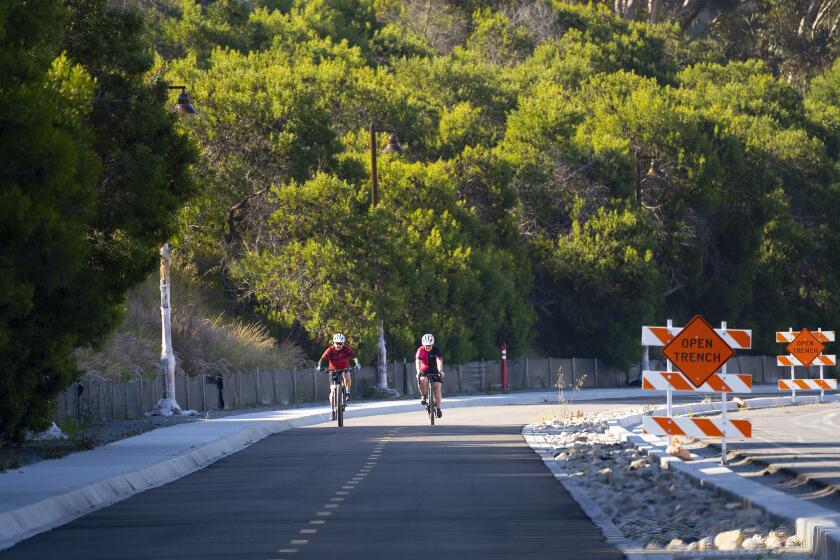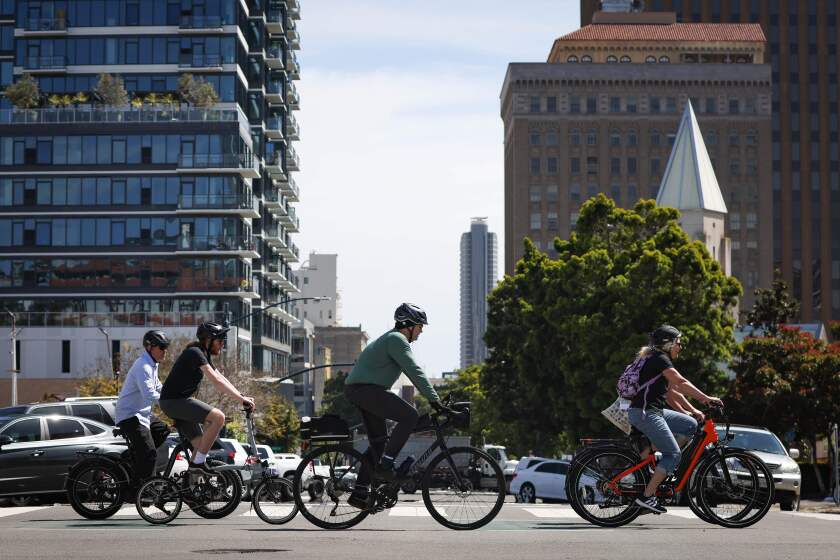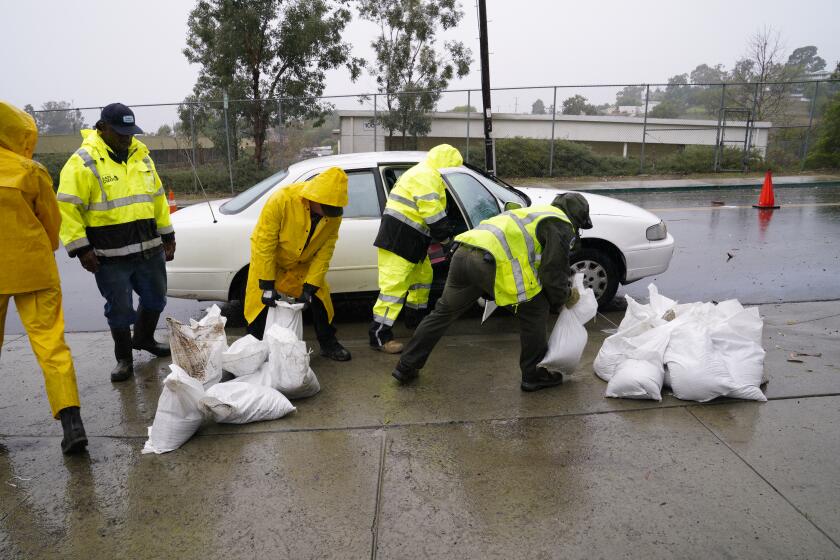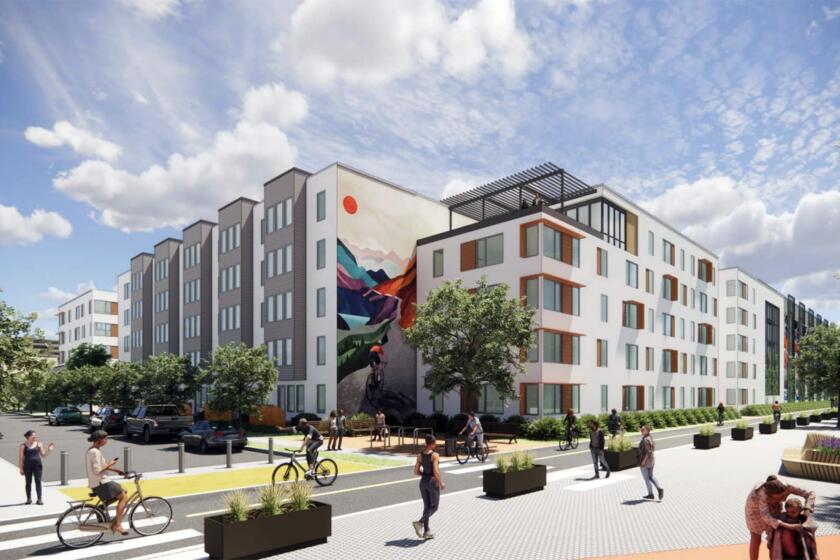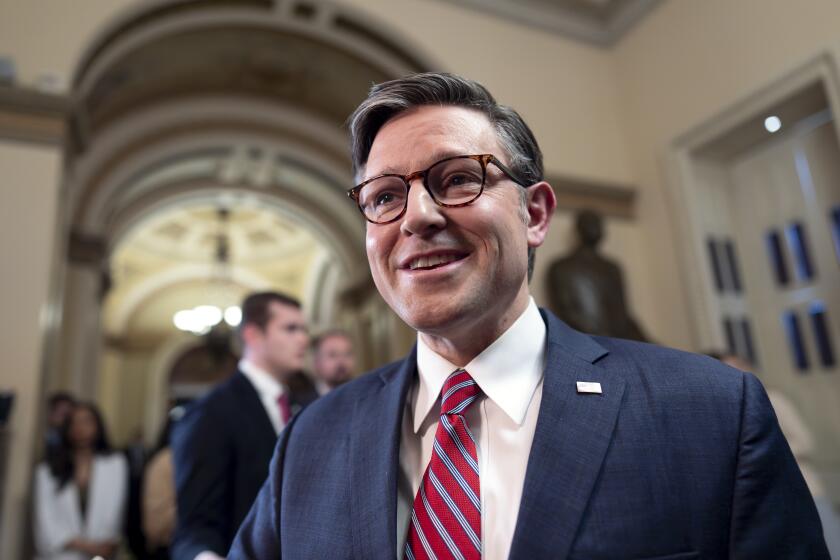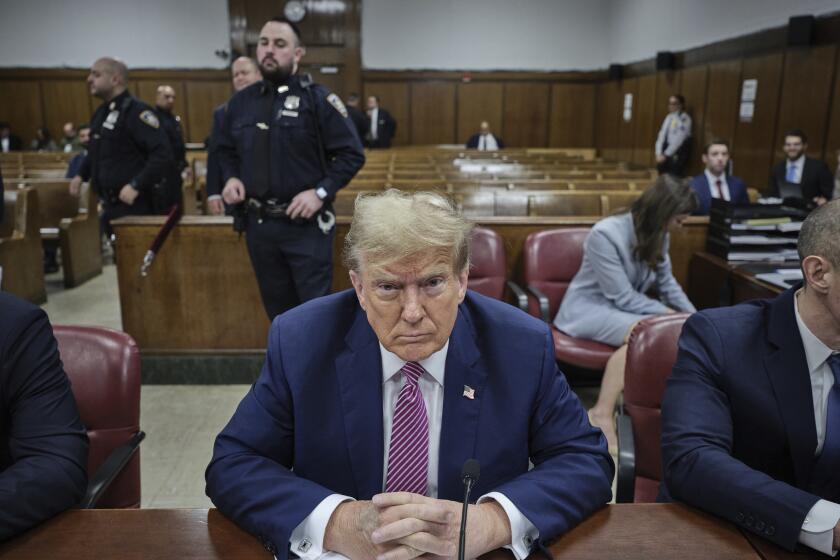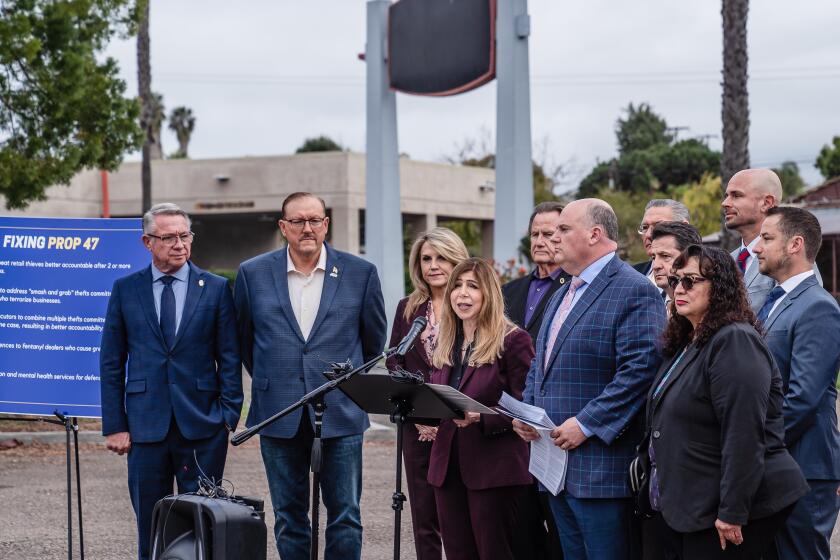Candidates debate gun control, homelessness
Candidates in the highly competitive San Diego city attorney race sparred this week over homelessness, gun control, tackling the city’s infrastructure crisis and how aggressively to prosecute misdemeanors.
The race features four Democrats and one Republican vying to succeed Republican Jan Goldsmith, who can’t run for re-election because of term limits.
If no candidate receives more than 50 percent of the vote on June 7, the top-two finishers will advance to a November runoff.
In a debate hosted by National University on Wednesday night, the candidates differed on how large a role the city attorney should play in solving the city’s multi-billion dollar backlog of infrastructure projects.
Democrat Mara Elliott, a Goldsmith lieutenant who could become San Diego’s first female city attorney, said she would be “proactive” and alert the City Council to pressing problems that could lead to litigation and payouts.
Democrat Rafael Castellanos, a real estate attorney and member of the Port Commission board, said he would give city leaders a menu of financing options and analyze which city assets could be collateral for lease-revenue bonds.
RELATED: Attorney candidates debate police videos, free speech
Democrat Bryan Pease, a private sector attorney known for lobbying to protect the La Jolla seals, said he would alert the council to all situations where fixing things immediately would cost less than subsequent lawsuits, such as clearing drainage channels to avoid floods.
Democrat Gil Cabrera, a private sector attorney who previously led the city’s Ethics Commission, said he would only explain litigation risk to the council because it’s not appropriate for the city attorney to be a policy maker.
Republican Robert Hickey, a prosecutor working for District Attorney Bonnie Dumanis, agreed with Cabrera, but added that he would urge the council to distribute infrastructure projects evenly across city neighborhoods.
On gun control, Hickey said he supports individual rights to carry weapons but that he supports reasonable regulation, particularly regarding mentally ill people seeking firearms.
LATEST LOCAL, STATE ELECTION RESULTS
The Democrats were less enthusiastic about individual rights, with Cabrera and Pease criticizing the Supreme Court’s interpretation of the Second Amendment.
Elliott said she has reservations about letting her children play in homes where there are guns, and that she would tighten the city’s municipal code on gun ownership as city attorney.
Castellanos, Elliott and Cabrera said they would support allowing Police Chief Shelley Zimmerman to issue gun permits.
Hickey said it makes more sense for the sheriff to handle that so policies are uniform across the region, and because the sheriff is an elected position.
Pease said he simply opposes the city issuing gun permits.
“I’m not one of the people who thinks the way you stop a mass shooting is by giving everyone guns and having a shootout,” he said.
On handling the 17,000 misdemeanors the city attorney prosecutes in a typical year, Castellanos said they are sometimes overzealous.
He was a juror in a three-day criminal trial of a man who parked in a handicapped spot even though his son, who was the person that made the vehicle eligible for a placard, wasn’t with him.
“You would have thought it was the federal crime of the century,” Castellanos said. “It was a waste of taxpayer dollars and a bad exercise of discretion.”
Pease said he had no problem with that prosecution, but criticized the city attorney’s office for letting politics play a role in how aggressively they pursue some cases.
Elliott said she wants to expand the office’s “community court” program, which aims to prevent early offenders from becoming career criminals by letting them avoid jail if they complete community service and pay a fine.
“For some of these crimes, there is a real opportunity for the city attorney to change people’s lives,” said Elliott, adding that fewer trials also saves taxpayers money.
Cabrera essentially agreed, expressing gratitude that he was let off relatively easily for a shoplifting incident when he was young.
But he added that the city needs to be more focused on domestic violence cases, particularly on helping victims.
Hickey said aggressive prosecution is crucial in cases of domestic violence, driving under the influence and vandalism, partly because they affect quality of life.
“These are crimes that really change the character of a neighborhood,” Hickey said.
On San Diego’s worsening homelessness problem, Cabrera said he was optimistic the city will soon be able to resume ticketing people for sleeping on the street and for blocking sidewalks with their belongings.
He said that optimism was based on additional housing opportunities providing by the city and a transitional storage facility the city has established.
A federal judge blocked the city from issuing tickets because there was no place for the homeless to sleep or store their things.
Castellanos said he was skeptical of aggressive enforcement, criticizing recent homeless “sweeps” in the East Village area of downtown.
“This is not something we are going to incarcerate our way out of,” he said.
Pease said fining the homeless is counterproductive because paying fines makes it that much harder for them to get back on their feet.
Similar to her endorsement of community court, Elliott said a homeless court could allow people to clear their records of tickets and warrants by entering rehabilitation programs.
Hickey praised that idea, expressing disappointment with California’s Proposition 47, which has been blamed for worsening homelessness by reducing prison and jail sentences for some offenses.
(This article has been updated to correct the initial version which stated that Hickey expressed disappointment with the federal judge. He did not.)
Get Essential San Diego, weekday mornings
Get top headlines from the Union-Tribune in your inbox weekday mornings, including top news, local, sports, business, entertainment and opinion.
You may occasionally receive promotional content from the San Diego Union-Tribune.

